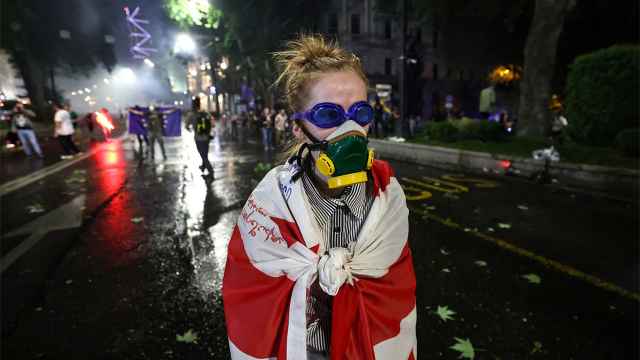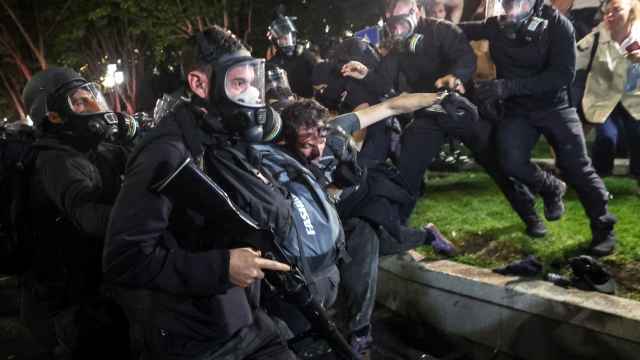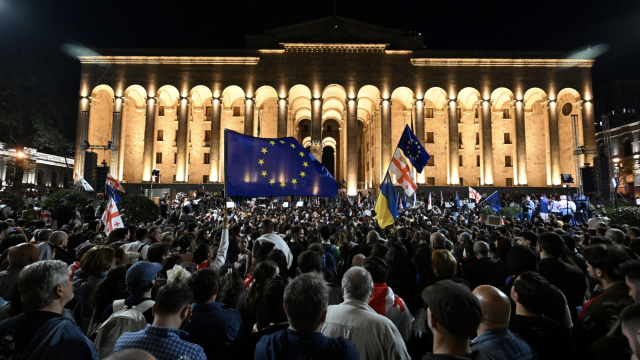Georgia's parliament voted Friday to drop controversial new legislation, which it earlier approved in an initial reading, sparking an international outcry and mass protests in the Caucasus country.
Tens of thousands took to the streets this week after lawmakers moved to introduce the "foreign agent" law.
On Friday, the bill was voted down in its second reading after only one lawmaker — out of 36 who voted — backed the legislation that critics had compared to laws in Russia that authorities have leveraged to silence Kremlin opponents.
Hundreds of anti-government protesters rallied outside the legislature during the vote.
Protesters clashed with police on Tuesday and Wednesday and law enforcement used water cannons and tear gas to disperse demonstrators.
The Kremlin on Friday accused the United States of stoking anti-Russian sentiment among the thousands of protesters who have taken to the streets in Georgia this week.
"We see where the president of Georgia is addressing her people from. She is not making an address from Georgia, she is making an address from America," Kremlin spokesperson Dmitry Peskov told reporters, accusing "someone's visible hand" of stoking "anti-Russian" sentiment.
The Georgian Dream ruling party backtracked under pressure, announcing on Thursday that it would drop the bill.
But opposition parties said in a joint statement that the protests would continue, pointing to a lack of guarantees "that Georgia is firmly on a pro-Western course."
Georgian authorities have faced mounting international criticism over a perceived backsliding on democracy, seriously damaging Tbilisi's ties with Brussels.
The ruling party has insisted it remains committed to Georgia's EU and NATO membership bid, enshrined in the constitution and supported — according to opinion polls — by 80% of the population.
Georgia applied for EU membership together with Ukraine and Moldova days after Russia invaded Ukraine in February 2022.
Last June, EU leaders granted formal candidate status to Kyiv and Chisinau, but said Tbilisi must implement reforms first.
A Message from The Moscow Times:
Dear readers,
We are facing unprecedented challenges. Russia's Prosecutor General's Office has designated The Moscow Times as an "undesirable" organization, criminalizing our work and putting our staff at risk of prosecution. This follows our earlier unjust labeling as a "foreign agent."
These actions are direct attempts to silence independent journalism in Russia. The authorities claim our work "discredits the decisions of the Russian leadership." We see things differently: we strive to provide accurate, unbiased reporting on Russia.
We, the journalists of The Moscow Times, refuse to be silenced. But to continue our work, we need your help.
Your support, no matter how small, makes a world of difference. If you can, please support us monthly starting from just $2. It's quick to set up, and every contribution makes a significant impact.
By supporting The Moscow Times, you're defending open, independent journalism in the face of repression. Thank you for standing with us.
Remind me later.






